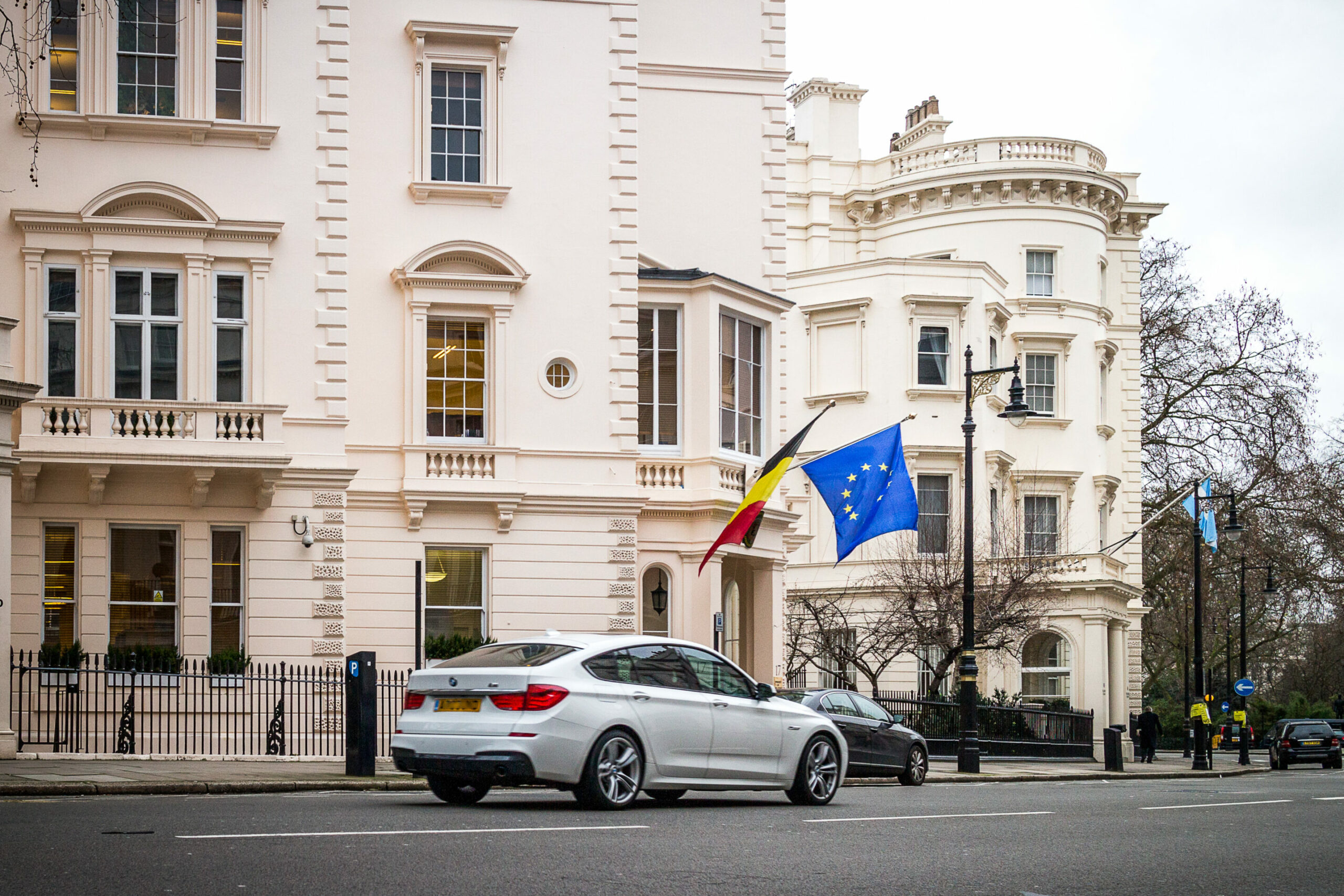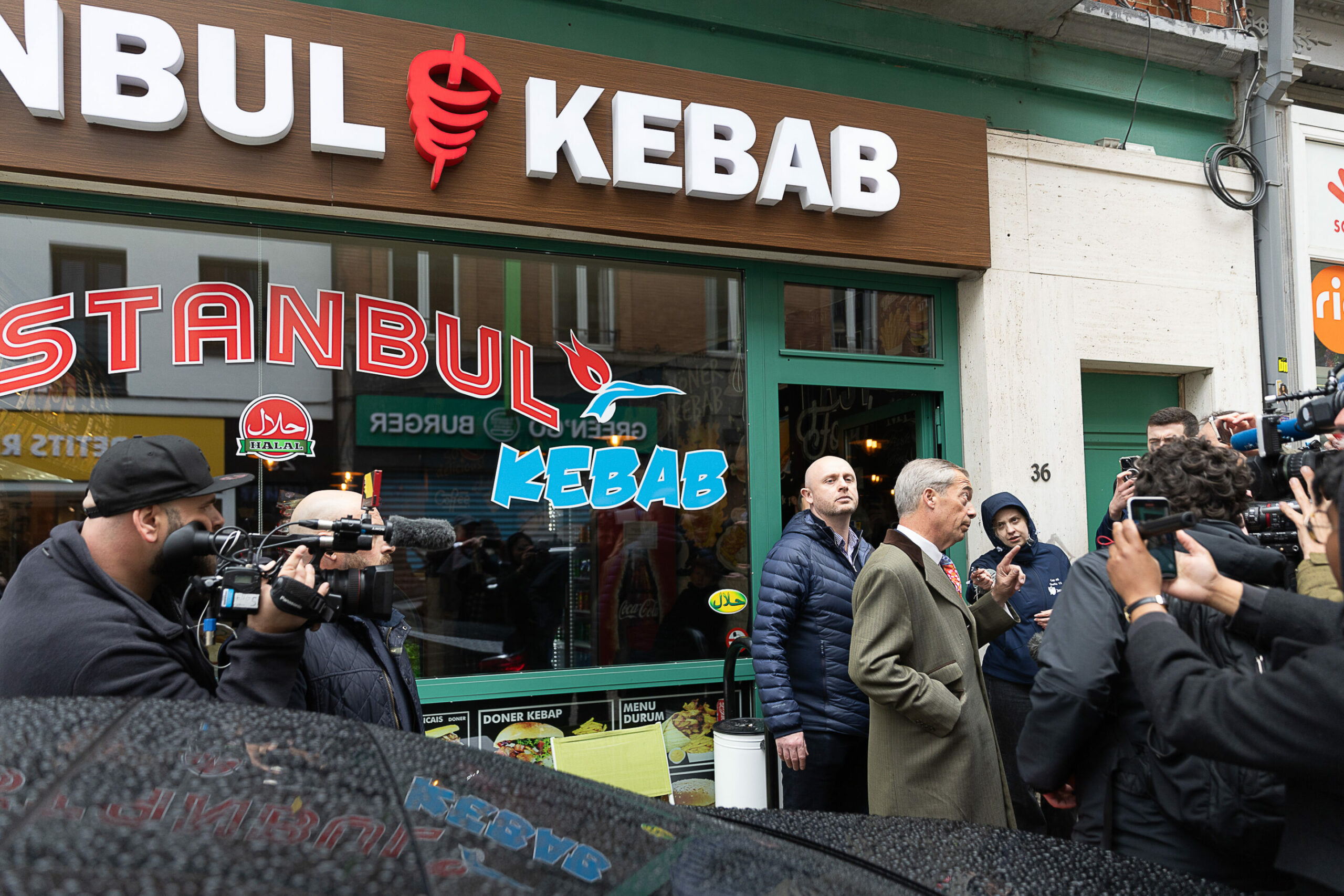During their 14 years in power, the UK Conservative Party struggled to reduce immigration, with increasingly hostile policies that tried to keep new arrivals out. But many UK nationals were also impacted, notably those with foreign-born partners or families. Could the landslide Labour victory do away with the strict requirements?
Moving abroad has become much harder for Brits since Brexit denied them access to countries in the European Union. But for those who have settled overseas, returning to the UK can also be complicated. Laws introduced by the outgoing Conservative government have blocked many from moving back home with their foreign-born partners or families, unless they earn above a certain threshold.
Increasingly desperate to achieve its migration targets, the Conservative government announced in April 2024 that it would significantly raise the Minimum Income Requirement (MIR) for partners, spouses or family members of British or settled individuals wishing to move to the UK.
Under the new rules, the minimum annual income normally required to sponsor someone for a spouse/partner visa rose from approximately €21,960 to €34,250 (£18,600 to £29,000). As part of the plan, UK Home Secretary James Cleverly proposed raising this to approximately €40,700 (£34,500) at the end of 2024, and again to €45,701 (£38,700) in spring 2025.
The plan attracted widespread criticism – particularly from the healthcare sector and the British Armed Forces. The pressure group Reunite Families UK (RFUK) lodged a High Court challenge against the increase to the salary threshold.
"Whilst they have been working hard to earn and save enough to sponsor their partner, the government has punished them once again. For many, [this is] their dream of a family life together here has been shattered," Reunite Families UK member Caroline Coombs said in a statement during the trial.
With 18,000 Brits residing in Belgium, this policy has major repercussions in this country alone.
Labour's possible reversal
After the policy was announced, Labour came out strongly against increasing the minimum income requirements, despite echoing the Conservatives' anti-migration rhetoric.
In a parliament debate in April 2024, Labour’s Shadow Immigration Minister Stephan Kinnock decried a "lack of evidence" behind the initial increase to £29,000, while calling for a "full impact assessment, so that MPs are able to fully understand the impact of the proposed changes on their constituents and make informed choices based on an informed analysis."
Labour has committed to undertaking an expert review on the increase of the Minimum Income Requirement – something the Conservative Party chose to ignore, instead pushing ahead with the plan without consulting the UK Migration Advisory Committee (MAC) on the impact of the law on different groups, or how many people it would affect.
"The first thing Labour would do if we are privileged enough to form the next government would be to ask the MAC to review this policy and to make recommendations about the level at which the threshold for spousal visas should be set in future," Kinnock told the House of Commons.
Whether Labour will actually loosen the migration policies is not yet clear. The topic will remain politically divisive as far-right Reform UK won four seats in Thursday's election.

Embassy of Belgium in London, England, United Kingdom. Credit: Belga / Siska Gremmelprez
"It is reasonable to expect active engagement from the Migration Advisory Committee on how to approach the MIR after Labour's election win, which we hope provides a clear, evidential and fair basis on how the MIR should be set," Zeena Luchowa, a partner at the London-based Laura Devine immigration law firm, told The Brussels Times.
The firm regularly assists with queries from those considering a relocation to the UK with a British or settled partner but who may not meet the threshold. "Often this can include reviewing whether there are exceptional circumstances, as well as looking at other immigration routes for relocation, including sponsored work routes."
For European nationals, the law firm also carefully reviews any historic periods of residence which may give rise to a late application under the European Settlement Scheme.
Hawkish targets
Other parties including the Greens and the Liberal Democrats called to scrap the requirements, while the far-right Reform UK (led by Nigel Farage) said it would "freeze non-essential immigration" and restrict access to benefits for foreign nationals, but did not propose anything on the policy itself.
Labour also says it wants lower migration and reduce the British economy’s dependence on overseas workers and prioritise training the local workforce.
"It is worth noting that as Labour is committed to reducing migration, the involvement of the Migration Advisory Committee may not necessarily result in a reduction to the MIR," Luchowa said.

UK far-right politician Nigel Farage outside a kebab shop in Saint-Josse, Brussels. 16 April 2024. Credit: Belga / Hatim Kaghat
As Keir Starmer emerges as the new UK Prime Minister on Friday, his route to Number 10 has been characterised by going back on promises, such as abolishing university tuition fees and a setting up a green investment package. But there are some indications that his party will take an evidence-based approach to setting the Minimum Income Requirement policy, which could lower the threshold.
"We would however hope to see some flexibility to the family route more generally, for example in considering the sources of income which can be relied upon to meet the MIR as well as exemptions to minimise the disproportionate impact on certain groups," Luchowa concluded.

